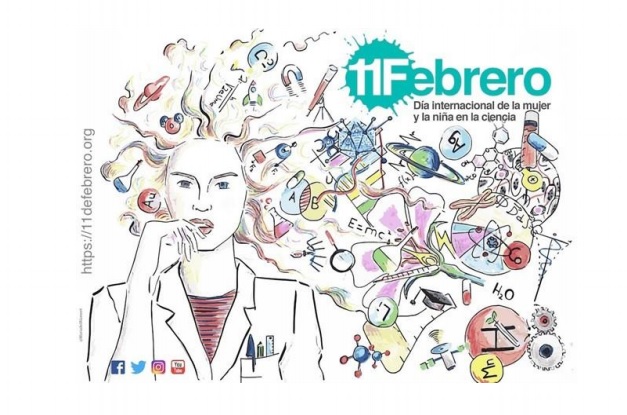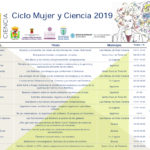On the occasion of International Women's and girls ' day in science, activities will be carried out on 11 February in order to give visibility to the scientific woman. In the Canary Islands, for the third consecutive year is organized the cycle of lectures "woman and Science" which, as a novelty, this year is added to the event the island of Tenerife and will begin on February 8.
The III cycle of lectures "women and science" will take place thanks to the collaboration of the Canarian Foundation Observatory of Temisas, the Association of researchers of Las Palmas, the Medical technology Group of the University of Las Palmas of Gran Canaria, from the MACbioIDi project, and the city councils of the different municipalities that participate: in Gran Canaria, Agüimes, Arucas and Las Palmas of Gran Canaria, while in Tenerife, the Laguna and Santa Cruz de Tenerife collaborate.
Numerous studies show that there is a gender inequality at the global level in many respects. Among them, there is a patent inequality between the number of men and women in the positions of greatest relevance and leadership within the academic field.
Among the main reasons, we find that today domestic and parenting responsibilities are still mainly about women and, in addition, various studies indicate that women receive less support than their peers when Promote in the academic world. Thus, while the main goal of men is to promote to access the most relevant positions, among women the most widespread goal is to achieve job stability. As a result, the number of women professors barely exceeds 20% of the total in Spain, a figure that is similar at the level of public universities in the Canary Islands. On the other hand, the most precarious labour contracts with the lowest level of pay in the country's universities have been largely occupied by women, as the CRUE recently recognized.
Despite the fact that the White Paper on the situation of women in Spanish science published in 2011 that the probability that a tenured professor is promoted to Professor is 2.5 times higher than that of a woman, or that a man with children quadruples the probability D E to be promoted in front of a woman with children, in identical curricular conditions, no measures have been taken in this respect and, although the proportion of women researchers and scientists in positions of relevance is increasing, this ascent is so slow that will not be achieved Reach parity up to over 100 years. This raises the problem that the presence of women in the scientific system not only does not advance in proportion to the number of women qualified to access the highest positions of the race, but can even go back. It is therefore necessary to implement active measures aimed at reducing gender inequality in science and technology. Among these measures, it has been proposed to undertake activities aimed at arousing scientific curiosity in both girls and boys, and breaking gender stereotypes by giving visibility to women researchers.
For this reason, for three years the cycle of conferences "women and science" in the islands is being carried out, in which Canary scientists explain to the public their work as investigators and they give to know scientists that have provided relevant results for Different scientific fields and whose work was never recognized. This initiative has been growing year after year thanks to the good acceptance it has had and, as a novelty, this year the island of Tenerife joins. Five municipalities from the two islands participate in a series of lectures made by scientists from various research centres in the archipelago, aimed at all types of public and which can be attended for free.
The cycle will begin on February 8 in Las Palmas de Gran Canaria and Santa Cruz de Tenerife, and be extended during the months of February and March, alternating talks in the different municipalities collaborators.



